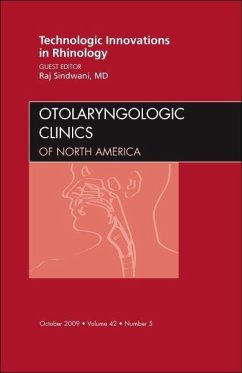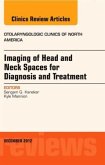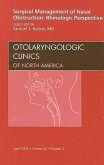Endoscopic sinus surgery has quickly become one of the most commonly performed operations in otolaryngology, with over 400,000 cases performed annually. The narrow confines of the sinonasal tract and the complex relationships with adjacent vital structures, demands a high degree of technical precision and provides little room for surgical error. The potential for disorientation during surgery is heightened when surgical landmarks are obscured because of bleeding, extensive disease or previous surgery, and when operating with angled-view endoscopes. Due to the proximity of the orbit and skull base, complications from sinus surgery can be catastrophic. Negative outcomes following endoscopic sinus surgery continue to be a leading cause of malpractice suits against otolaryngologists. It is therefore not surprising, that the introduction and continued proliferation of technological innovations has been met with such robust enthusiasm by the Rhinology community. The application of surgical navigation technology to sinonasal and skull base procedures, as an example, has ushered in a new era of surgical approaches to inflammatory as well as non-inflammatory conditions of this region. The endosopic approaches to the nearby orbit and skull base have expanded in part, due to technological advances; but these novel techniques have themselves also fostered the development of unique instrumentation. This issue of The Clinics appraises new technological developments in endoscopic sinus and skull base surgery and also critically examines recent updates to existing instrumentation. Each of the structured articles within is written by leading experts with extensive experience with the technology. The authors provide a description of the technology and how it works, and analyze the current role of the technology; including an evidence-based review of its impact on clinical outcomes, where appropriate.
Bitte wählen Sie Ihr Anliegen aus.
Rechnungen
Retourenschein anfordern
Bestellstatus
Storno






